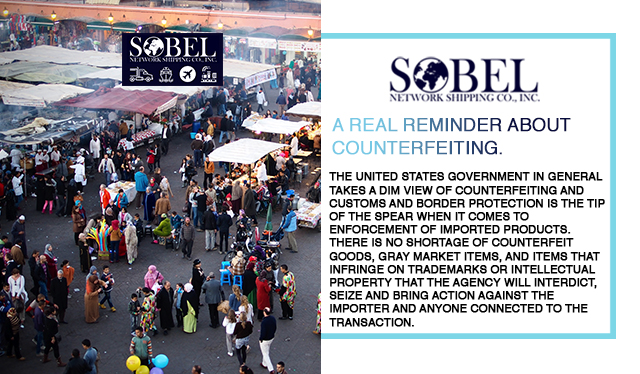The United States government in general takes a dim view of counterfeiting and Customs and Border Protection is the tip of the spear when it comes to enforcement of imported products. There is no shortage of counterfeit goods, gray market items, and items that infringe on trademarks or intellectual property that the agency will interdict, seize and bring action against the importer and anyone connected to the transaction.
The importation of counterfeit merchandise not only harms the trademark holder, but also has been shown to be a vehicle for transnational crime organizations as a source of funding their operations. From blitzes on flea markets to cases like this, the urgency for the government to prevent this behavior from offending countries and companies is persistent.
Trademark holders will sometimes take action themselves, and one such example played out in court earlier this month stemmed from the importation of five containers of counterfeit shoes bearing the Nike brand. An NVOCC was contracted to move the containers and was unaware that the contents were violative.
From the NCBFAA:
“The NVOCC handled five containers of counterfeit Nike shoes from China between 2017-2018 in an elaborate scheme of deception by the Chinese exporter and U.S. importer. The containers of illicit shoes were manifested as lamps. Customs and Border Protection (CBP) stopped and seized the fifth container in late 2019.
The outcome of the opinion (Nike, Inc. v. B&H Customs Services, Inc., et al., S.D.N.Y. #20-01214), which was reported by International Trade Today on Oct. 5, could have been different if the NVOCC had not successfully convinced the judge that it did not use the shoe manufacturer’s mark in any way and that it could not be held liable as a contributor to infringement based on a 1982 Supreme Court decision.
However, according to the Sept. 30 opinion, the NVOCC still faces a potential contributory infringement under the Lanham Act.”
There are multiple data filings associated with an ocean shipment, including the manifest filing by the freight forwarder and the Importer Security Filing by the importer, their customs broker or a designee. The amount of data available to CBP dwarfs that of what is available to a customs broker filing an entry, limiting a company’s ability to conduct as comprehensive a review of an importer’s history as can the regulatory agency.
Our role at Sobel Network Shipping is in facilitating legitimate trade between the United States and other countries on behalf of our clients. As part of our due diligence, as well as being our responsibility as a CTPAT company, we ask questions of importers and exporters when onboarding them and persistently through our relationship with a client during the entry process or during a post-entry audit.


